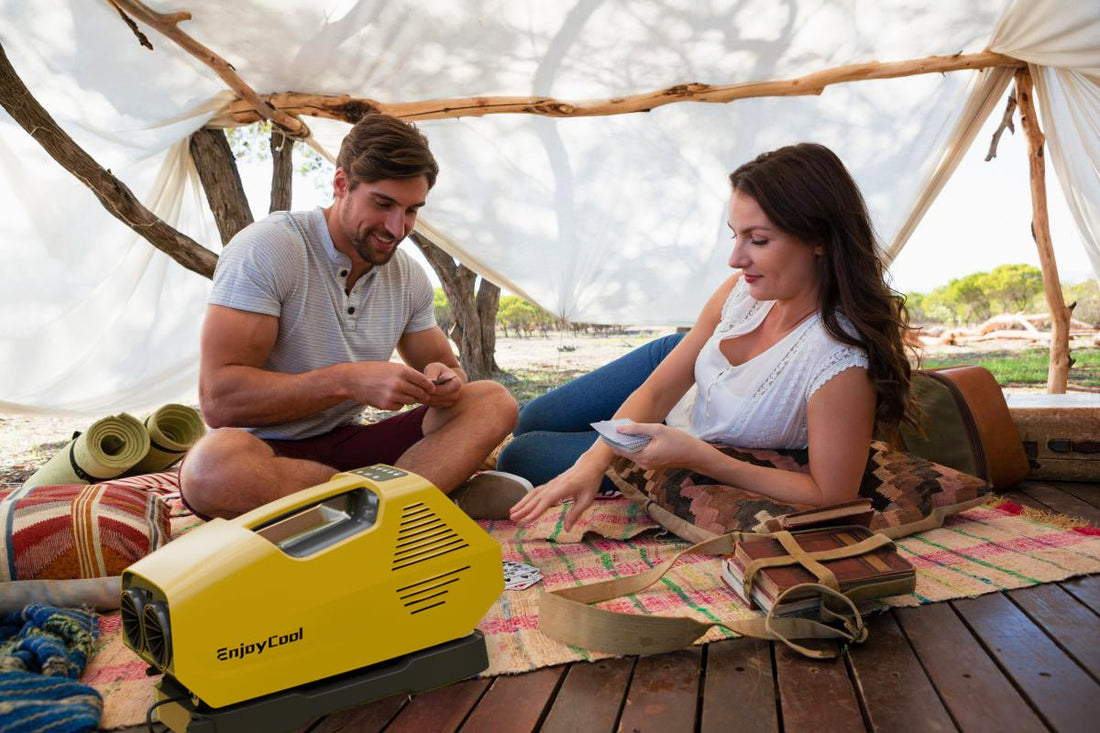Comparison of Single Hose vs. Dual Hose Portable Air Conditioners
Comparison of Single Hose vs. Dual Hose Portable Air Conditioners
Choosing the Right AC
When it comes to selecting the ideal portable air conditioner, it's essential to grasp the disparities between single hose and dual hose units. These differences play a significant role in determining which type of portable AC unit will best suit your needs.
Tip: Understanding the variations between single hose and dual hose units is crucial when choosing a portable air conditioning unit.
Now, we can move on to explore the advantages of single hose units.
Single Hose Advantages
When considering portable air conditioners, single hose units offer several advantages worth noting.
Affordability
-
Single hose units are a more budget-friendly option compared to dual hose units. They are typically priced lower, making them an attractive choice for those seeking a cost-effective cooling solution. Additionally, the installation process for single hose units is relatively straightforward, which can save both time and money.
Energy Efficiency
-
While single hose units are generally more affordable, they may be slightly less energy efficient compared to their dual hose counterparts. This means that they might consume slightly more energy to achieve the same level of cooling as dual hose units.
Dual Hose Benefits
When it comes to dual hose portable air conditioners, there are distinct benefits that make them a compelling choice for cooling larger spaces.
Cooling Performance
Dual hose units are designed to deliver superior cooling performance compared to single hose units. Their dual hose configuration allows for more efficient air circulation, resulting in faster and more effective cooling. This makes them particularly well-suited for larger rooms or areas where consistent and powerful cooling is essential.
Energy Efficiency
In addition to their impressive cooling performance, dual hose portable air conditioners also excel in energy efficiency. The dual hose design enables these units to operate with greater energy efficiency, ensuring that they can effectively cool a space while consuming less power. As a result, they are not only capable of maintaining comfortable temperatures but also contribute to lower energy consumption and reduced utility costs over time.
Key Selection Factors
When choosing a portable air conditioner, there are key factors to consider that can significantly impact its performance and suitability for your specific needs.
BTU Capacity
The British Thermal Unit (BTU) capacity of a portable AC is an important consideration. It determines the cooling power of the unit and is directly related to the size of the space it can effectively cool. Choosing a unit with the appropriate BTU capacity ensures that it can efficiently cool the intended area without overexerting itself or consuming excessive energy. It's essential to match the BTU capacity of the portable air conditioner with the size of the room or space where it will be used to achieve optimal cooling performance.
Energy Efficiency
Energy efficiency plays a crucial role in selecting a portable cool air conditioners unit. An energy-efficient unit not only helps reduce electricity consumption but also contributes to lower utility costs over time. When evaluating different models, look for units with high Energy Efficiency Ratios (EER) or Seasonal Energy Efficiency Ratios (SEER), as these ratings indicate how efficiently the unit uses energy to provide cooling comfort.
Efficiency and Performance
When it comes to selecting the most suitable portable air conditioner, comparing key features is essential for making an informed decision that aligns with specific cooling needs. Additionally, considering factors such as efficiency and performance is crucial in ensuring optimal cooling comfort and energy savings.
Comparison of Features
-
When comparing portable air conditioning units, it's important to assess key features such as BTU capacity, energy efficiency ratings, programmable settings, and noise levels. These features directly impact the AC unit's effectiveness in cooling a space and its overall convenience. By evaluating these aspects, consumers can identify which unit best meets their requirements for efficient and reliable cooling.
Performance Considerations
Tip: Efficiency and performance are critical factors to consider when choosing a portbale ac . Evaluating these aspects ensures that the selected unit delivers effective cooling while minimizing energy consumption.
Considering the efficiency of the unit in relation to its cooling performance is vital. Units with higher Energy Efficiency Ratios (EER) or Seasonal Energy Efficiency Ratios (SEER) tend to provide better cooling results while using less energy. Additionally, assessing noise levels can contribute to a more comfortable living environment by selecting a quieter operating unit.
By carefully comparing features and considering performance-related factors, consumers can confidently select a stationary ac unit that offers superior efficiency and reliable cooling performance.
Optimal Portable Air Conditioner
When making a decision about the optimal portable air conditioner, it is crucial to consider the specific needs for cooling. By carefully evaluating key features such as BTU capacity, energy efficiency, and cooling performance, consumers can make an informed choice that aligns with their requirements for efficient and reliable cooling. It's important to prioritize factors like energy efficiency ratings, programmable settings, and noise levels to ensure that the selected portable air conditioning unit delivers superior efficiency and dependable cooling performance.

